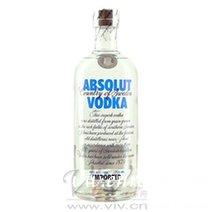| ||||||||||||||||||||||||||||||||||||||||||||||||||||||||||||||||||||||||||||||||||||||||||||||||||||||||||||||||||||||||||||||||
|
随着全球金融危机的蔓延,俄罗斯百姓“勒紧裤腰带过日子”的意识正进一步增强。“国酒”伏特加本月的存货量比去年同期高出六倍,越来越多的人们为了省钱而选择廉价的伏特加替代饮品,从而导致今年九月以来俄罗斯的酒精中毒致死事件频发。 The global financial crisis has grown so bad that Russians are cutting back on vodka. Stockpiles of Russia's national drink were six times higher at the start of the month than the same time a year ago because factories are producing vodka faster than they can sell it, an alcohol industry lobby and research group said on Monday. "People are having to save money, including on drinks, and this is connected to the impact of the financial crisis on people's disposable incomes," Pavel Shapkin, president of the National Alcohol Association (NAA), told Reuters. Research by his organisation1 showed deaths from alcohol poisonings in September increased to 1,458 -- the result, it said, of some Russians turning to dangerous vodka substitutes as they try to find a cheaper way of becoming intoxicated2. Russia's economy has been among the biggest losers from the global financial crisis. Its stock markets have lost about 70 percent of their value since peaks in May, and workers have been hit by lay-offs and wage arrears4. Russians consume the equivalent of 15 litres of pure alcohol per head each year, chief public health official Gennady Onishchenko said in a newspaper interview last year. The alcohol industry body said 8.2 million decalitres of vodka -- or more than half a litre for every one of Russia's 141 million population -- was stockpiled in shops and warehouses5 on November 1, a volume unprecedented6 in modern Russia. In further evidence of the impact of the crisis, separate research by TsIFFRA, an industry analytics firm, showed alcohol production dropped 15 percent in October due to poor demand. Fatalities7 related to alcohol poisoning had been in steady decline since 2006, when there was an outbreak of deaths from bootleg vodka. But in September they rose again for the first time, going up by 6 percent on the same period last year, according to the NAA's research. "The government has to do something for these people trying to afford the most basic essentials in life," Shapkin said. "At times like this, any grandmother can collect some old bottles, fill them with whatever she wants, and sell them to the alcoholics9 that are trying to save some money." The previous outbreak of fatal alcohol poisonings was caused by a crackdown on counterfeit10 liquor being sold in stores in the city of Pskov in north-west Russia. Bootleggers quickly filled the vacuum with a low-grade black market brew11, which was blamed for widespread liver failure, jaundice and toxic3 hepatitis that swamped the city's hospitals and its morgues. Other drinkers went for anything with alcohol content, including cosmetics12, perfumes and cleaning agents to bring about the same effects as vodka, whose name in Russian is the diminutive13 of the word for water. Vodka gained widespread popularity in the 1860s after the Tsarist government lifted its monopoly on vodka production. This caused prices to plummet14 and made vodka available to even the poorest Russians. Today it accounts for roughly 70 percent of all the alcoholic8 beverages15 consumed in Russia, and a plastic half-litre bottle can be purchased for as little as 50 roubles (1.20 pounds). But more affluent16 Russians, who have increasingly favoured whisky in recent years, can pay thousands of dollars for a single bottle of top-quality vodka. 点击  收听单词发音 收听单词发音
|
||||||||||||||||||||||||||||||||||||||||||||||||||||||||||||||||||||||||||||||||||||||||||||||||||||||||||||||||||||||||||||||||
- 发表评论
-
- 最新评论 进入详细评论页>>




